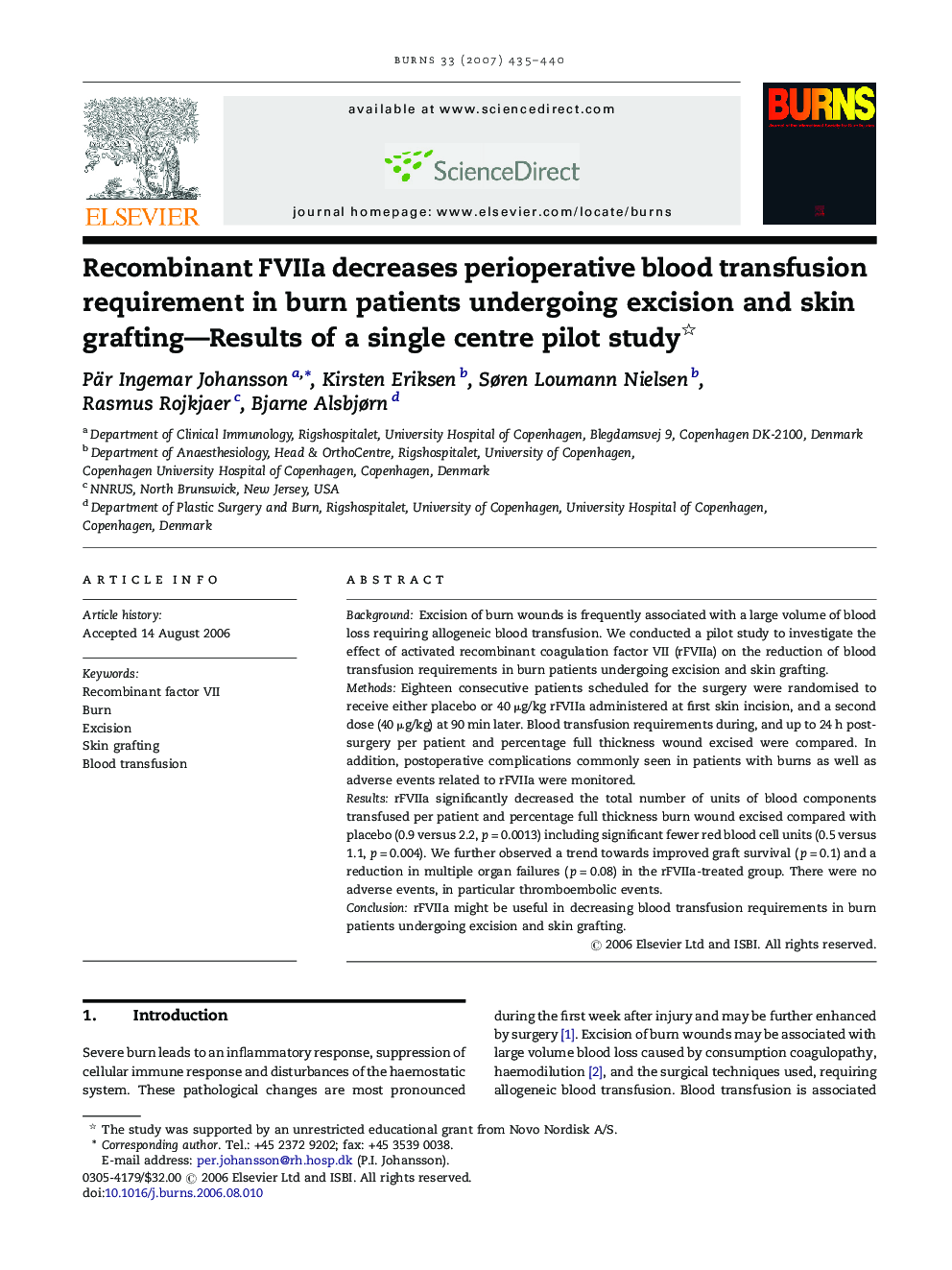| Article ID | Journal | Published Year | Pages | File Type |
|---|---|---|---|---|
| 3106611 | Burns | 2007 | 6 Pages |
BackgroundExcision of burn wounds is frequently associated with a large volume of blood loss requiring allogeneic blood transfusion. We conducted a pilot study to investigate the effect of activated recombinant coagulation factor VII (rFVIIa) on the reduction of blood transfusion requirements in burn patients undergoing excision and skin grafting.MethodsEighteen consecutive patients scheduled for the surgery were randomised to receive either placebo or 40 μg/kg rFVIIa administered at first skin incision, and a second dose (40 μg/kg) at 90 min later. Blood transfusion requirements during, and up to 24 h post-surgery per patient and percentage full thickness wound excised were compared. In addition, postoperative complications commonly seen in patients with burns as well as adverse events related to rFVIIa were monitored.ResultsrFVIIa significantly decreased the total number of units of blood components transfused per patient and percentage full thickness burn wound excised compared with placebo (0.9 versus 2.2, p = 0.0013) including significant fewer red blood cell units (0.5 versus 1.1, p = 0.004). We further observed a trend towards improved graft survival (p = 0.1) and a reduction in multiple organ failures (p = 0.08) in the rFVIIa-treated group. There were no adverse events, in particular thromboembolic events.ConclusionrFVIIa might be useful in decreasing blood transfusion requirements in burn patients undergoing excision and skin grafting.
